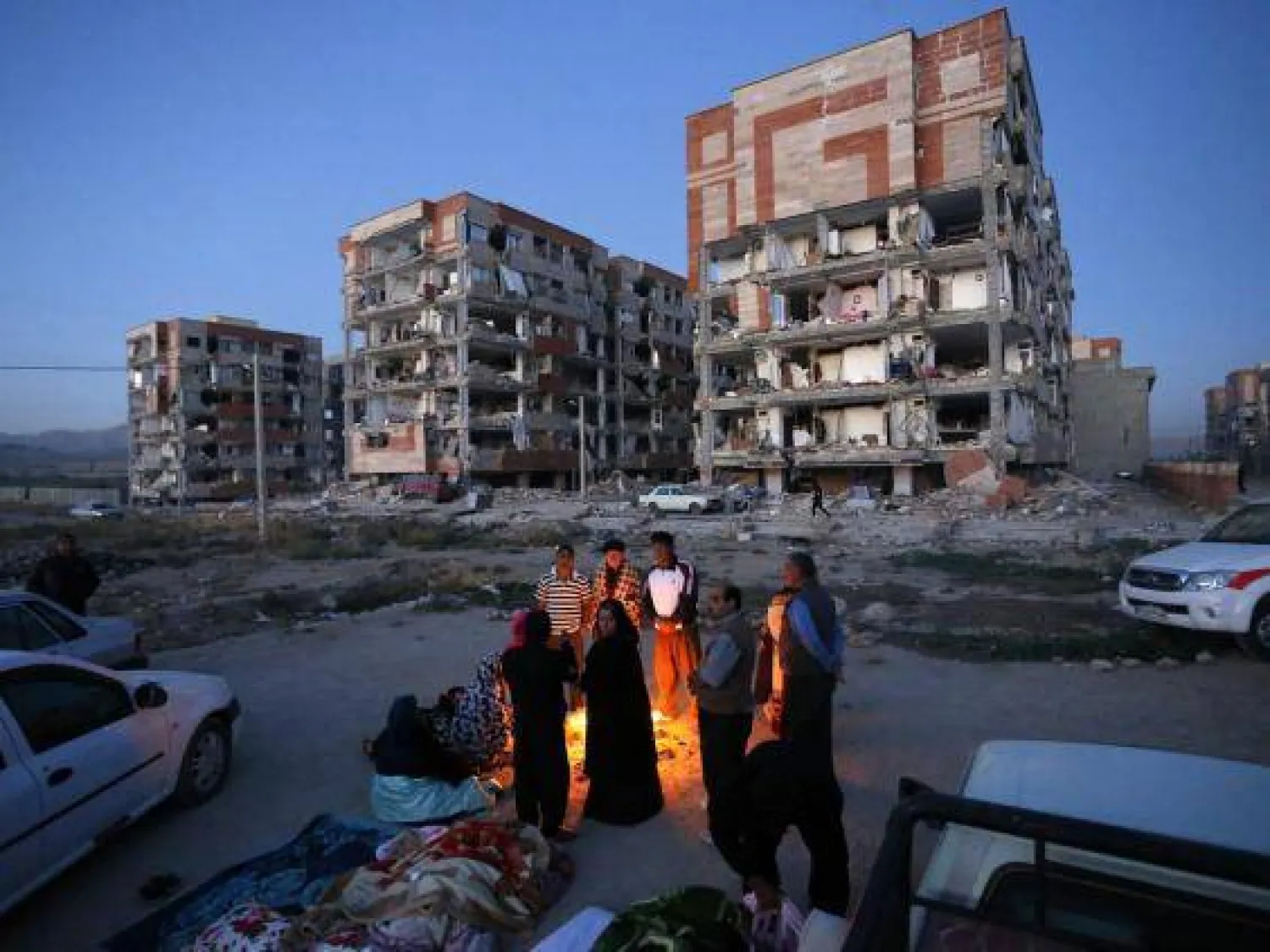Iranian President Hassan Rouhani has admitted that there have been corrupt practices in state-built homes in western Iran as Supreme Leader Ali Khamenei discussed with top officials the aftermath of Sunday’s earthquake.
Khamenei met on Wednesday with Rouhani and several other officials. Iranian media have not reported the results of the meeting but the supreme leader ordered the government and armed forces to mobilize "all their means.”
The 7.3-magnitude quake struck Iran's western province of Kermanshah near the border with Iraq, killing more than 400 people and leaving 9,500 injured, the German News Agency (dpa) reported.
That a house built by (ordinary) people in the Sarpol-e Zahab region has remained standing while in front of it a government-built building has collapsed is a sign of corruption," Rouhani told a cabinet meeting, state media said.
"It's clear there has been corruption in construction contracts," he said.
Rouhani said any shortcomings in government constructed buildings in the earthquake zone will be punished.
Some of the houses which collapsed in the earthquake were built under an affordable housing scheme initiated in 2011 by Rouhani's predecessor, Mahmoud Ahmadinejad.
Mohammad Hossein Sadeghi, the prosecutor general in Kermanshah, the largest city in the earthquake zone, said that the quality of construction of new buildings that were heavily damaged would be investigated and charges may be brought against anyone deemed responsible.
"If there are any problems with the construction, the individuals who were negligent must answer for their deeds," Sadeghi said, according to the Iranian Students' News Agency (ISNA).
The quake is estimated to have caused damage worth 26,000 billion Iranian rials (about $6.3 billion), Kermanshah provincial deputy governor Mojtaba Nikkerdar said, quoted by ISNA.
That is equivalent to about 1.5 percent of the Iranian gross domestic product (GDP) which the International Monetary Fund has forecast for 2017, Agence France Presse said.
In total, about 30,000 homes were damaged or destroyed, Iranian authorities say.
Interior Minister Abdolreza Rahmani Fazli told lawmakers that the authorities had sent 36,000 tents and another 10,000 would follow for families too fearful of aftershocks to sleep in their own homes, ISNA reported.
The cabinet approved a series of measures including interest-free loans and donations to affected households to replace their destroyed furniture or other belongings.









